#revenue cutters
Explore tagged Tumblr posts
Text

A smuggler under pursuit by a revenue cutter by Montague Dawson
#montague dawson#art#age of sail#smugglers#smuggler#smuggling#ship#ships#revenue cutter#united kingdom#england#great britain#sea#marine art#maritime art#ocean#history#english#british#revenue cutters
76 notes
·
View notes
Text

Dawn suspect: The Revenue cutter Kite chasing a smuggler lugger, by Montague Dawson (1890-1973)
97 notes
·
View notes
Text
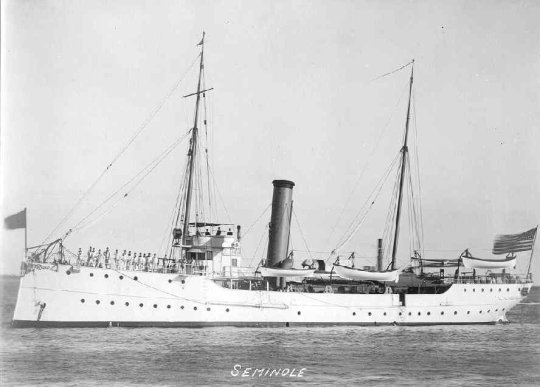
Seminole was a 188-ft, 845-ton United States Revenue Cutter (Coast Guard Cutter after 1915) constructed by the Columbian Iron Works in Baltimore, Maryland. She entered service in 1900, and after varied and interesting duties before and during the First World War, she played noteworthy part in the Coast Guard’s effort to interdict bootlegging operations at sea during Prohibition in the United States, from 1920 to 1933.
Rum Runner tactics demanded creativity from Coast Guard skippers: Cmdr. Philip H. Scott, who commanded the Seminole in the Rum War’s early days liked to seize rum-running craft and turn them into patrol boats. On one occasion, Scott dressed in civilian clothes and cruised around in a seized tug, making conversation with rum runners. Once he’d determined that they were smuggling, he raised the Coast Guard flag and seized their vessels too.
In 1923, Seminole was detached to Puerto Rico where she served as an independent unit and returned to her permanent station of Wilmington, North Carolina, later that year.
On March 5, 1927, the SS Cabo Hatteras, a Spanish cargo ship, caught fire in the Atlantic Ocean 140 miles southeast of Sandy Hook, New Jersey, and was abandoned by her crew, who were rescued by the Spanish steamer Cabo Torres. On March 6, Seminole sank Cabo Hatteras with gunfire to prevent the burned derelict from becoming a hazard to navigation.
In 1929, Seminole transferred to the Great Lakes, where she was stationed at Sault Ste. Marine, Michigan until she was decommissioned in 1934 and transferred to the Federal Emergency Relief Administration.
Scott made many seizures while captaining the Seminole, and the Coast Guard as a whole didn’t hesitate to operate seized craft in furtherance of its duties. Estimates vary, but between 450 and 650 rum runners were repurposed by the service.
#USRC Seminole#USCGC Seminole#1900s#1910s#1920s#1930s#revenue cutter#coast guard cutter#uscg#prohibition#Philip H. Scott#Philip Scott#rum war#rum row#seized vessels#seized assets#Puerto Rico#1923#undercover#sting operation#Wilmington North Carolina#Cape Fear#SS Cabo Hatteras#SS Cabo Torres#1927#1929#Great Lakes#Federal Emergency Relief Administration
1 note
·
View note
Text
#Global Insulated Cable Cutter Market Size#Share#Trends#Growth#Industry Analysis#Key Players#Revenue#Future Development & Forecast
0 notes
Text
Laces for a Lady - 18th century poly shifter romance (Part one, sfw)
Disclaimer which I’m including in all my works after plagiarism and theft has taken place: I do not give my consent for my works to be used, copied, published, or posted anywhere. They are copyrighted and belong to me.
Well folks, here it is. You said you were interested, so I hope it meets expectations! Here's part one for you, of a multi part story. If you want to kno wmore about it, you can find some more info here, as well as a little 'mood board'.
Content: sfw, the daughter of a country gentleman from Sussex relocates to a sleepy fishing village in Cornwall in order to become the paid companion of a young widow, and meets some of the locals on her arrival. Wordcount: 3972

Five and twenty ponies, Trotting through the dark - Brandy for the Parson, 'Baccy for the Clerk. Laces for a lady; letters for a spy, Watch the wall my darling while the Gentlemen go by! ~ from ‘A Smugglers’ Song’, Rudyard Kipling (1906)
In the cool, lavender light of a late spring dawn, a gaff-rigged cutter drew into the sheltering arms of a small bay at high tide, and quietly dropped anchor. As if the soft splash had awoken him, a cockerel spluttered to life in a farmyard somewhere inland, but most of the villagers were already up and awake and steering their small, secret fleet of boats out from the golden crescent of sand beneath the cliffs to meet the waiting ship fresh from Roscoff.
Beneath the waves, where churning kelp moored itself in unyielding handfuls to the ancient granite of the sea floor, a long, serpentine shadow snaked between the stalks, and the currents of the coastline subtly shifted. Any revenue men trying to sail along the coast from Fowey to catch the smugglers would have found the wind and tide set dead against them, and in the subtle wake that wafted from the mottled, eel-like tail as it passed unseen, the waters of the secluded inlet calmed beneath the keels of the scurrying fishing boats. The drag of the oars through the waves lessened, and muscles already tired from heaving and hefting goods up the cliff moved a fraction easier for the unexpected boon.
Between them over the next hour, the gathered men and women shifted their haul of half anker barrels and dozens of crates and boxes of goods ashore. The small kegs of rich, French cognac would fetch a pretty price all across Cornwall, and along with the liquor came smaller luxuries like lace and silk, and bundles of tobacco and spiced tea, all meticulously wrapped in oil cloth to keep the sea and the salt and the water out.
And when the speedy, slender ship was riding noticeably higher in the water, the locals simply melted away into the countryside like so many mice from a late summer granary before the excise men even knew the ship from Guernsey had visited the cove at all.
Fifteen miles away, as the sun breached the horizon and cast its first rays of warmth along bellies of fleecy clouds and the flanks of blossoming hedgerows below, a stagecoach lurched and rumbled westwards along potholed roads, and a young woman stared out of the grimy window as the horses carried her into a new chapter of her life.
After leapfrogging some two hundred miles or so along the staging stations that dotted the South Coast, with nothing but a small trunk of her belongings and a thrice-read, dog-eared novel for company, Eleanor Bywater was more than ready to see the back of that infernal stagecoach. Had it not been for the small but inconveniently bulky travelling case sitting at her feet, she might have hired a horse and ridden from the last staging inn at Plymouth to reach the secluded fishing village of Polgarrack, but given that the trunk held all her worldly belongings, she had not been quite desperate enough to escape the discomfort of hard seats and poor suspension to abandon it.
Bouncing along in the nearly-empty stagecoach, she studiously tried to ignore the older woman sitting opposite her. She’d stared intently at Nel since they'd left Plymouth behind that morning, and her scrutiny had begun to make that last twenty mile stretch feel much, much longer.
Finally, after jouncing over a pothole deep enough to start prospecting for copper ore at the bottom, Nel gasped and then raised her eyes to meet the woman’s openly curious stare. She found sympathy for her own discomfort, and a small degree of kindly amusement too.
“Where are you headed, miss?” the stranger asked after Nel raised the hint of an eyebrow at her as the silence stretched.
“Polgarrack.”
At that, the woman’s grey eyes narrowed in confusion. “Now what takes a young miss like you to an old fishing village like Polgarrack?”
She looked to be in her fifties, though a life beside the harsh sea had weathered her features somewhat, and her wiry grey hair was covered by a simple linen cap. Her dress was dark and plain, though there was a hint of tired lace around the neck and cuffs. Her hands had the tough, reddened look of someone who scrubbed pots and salted fish, while Nel’s own hands were smooth and soft, if a little ink stained from sending a letter to her friend before leaving the inn that morning.
Nel laughed quietly and shrugged. “There’s no mystery to it,” she said. “I am to be employed as a companion to the widowed Lady Penrose at Heath Top House. I am expected there this afternoon.”
Given that only ladies of relatively high social standing themselves tended to become a ‘lady’s companion’, the older woman made a hasty re-evaluation of her fellow traveller, and her already ruddy cheeks flushed a darker shade as she cleared her throat and looked away.
“Begging your pardon, miss,” she said. “We don’t get many new faces in Polgarrack, is all. I didn’t mean to pry or cause offence with my questions.”
“No harm in a little curiosity,” Nel said, trying to put the stranger at ease to avoid any further awkwardness between them on the remainder of their journey. “I take it you’re from Polgarrack yourself then?”
“Oh, born and raised, miss,” she chortled. She eyed the forest green redingote Nel wore, with its rather masculine high collar, wide lapels and small, gold pocket watch dangling on a chain, and the contrasting sage green skirts beneath, and no doubt made one or two judgements of her own about the young lady. “And yourself? You don’t sound as though you’re from these parts at all, if I may be so bold.”
Nel smiled. “I’ve come from Sussex.”
The woman’s watery, grey-blue eyes widened almost comically and she gasped. “’at's a bloody long way, miss! And all on your own?” She shook her head but remembered herself and mumbled, “Begging your pardon.”
“You’re right,” Nel sighed, letting her gaze slide to the window to watch the countryside roll past in a blur of salt-bleached grass and vibrant yellow gorse flowers. “It is a bloody long way.” And her spine and backside felt every lump and bump and lurch of the stagecoaches from Sussex to Cornwall. With a warmer smile, she turned back to the woman. “My name is Eleanor, but most people call me Nel.”
“Agatha,” she replied with a grandmotherly smile of her own for the young woman. “But everyone calls me Aggie. My husband, Martin, is the village carter and smith, and we’ve got four boys, all of them either fishermen or miners. They all married too, so I’ve got nine grandchildren, if you can believe it!”
Nel offered Aggie her congratulations and another little smile, and then ventured to ask, “Will you tell me a bit about the place? I should like to know more about it, since it is to be my home for the foreseeable future.”
Aggie brightened even more and shuffled her plain, dark skirts, giving a wince and a grunt as the coach lurched over a pothole and the driver cursed audibly above them. Settled, if not entirely comfortable, she began.
“Well, see now. Folks has been fishing these waters for time out of mind. Pilchards is our mainstay, o’course, but the folks over St. Austell way mine clay, and obviously there’s copper and tin mines all over in the north of Cornwall. Mining here is as old as fishing, but it’s starting to dry up here and there now, o’course.”
She barely paused to draw breath before barrelling on, and Nel sat and listened while the older woman talked.
“Now, your Lady Penrose married into the Penrose family — see, she’s from Bath herself originally, though I can’t rightly remember what her family name was, but…” Nel let Agatha's potted history of the fishing and mining community wash over her, paying just enough attention to make polite sounds at the right pauses, but the discomfort of the journey and a decided lack of sleep was beginning to wear her attention span down to a single, fraying thread.
After two hours in the swaying, rolling coach, she felt woozy and weak-stomached, but with Aggie’s near-constant chatter, she at least had a better understanding of the politics of the little village than she’d ever have gained in six months on her own. She’d also learned why Aggie had been in Plymouth, since most folks never had any reason to travel further than the bounds of their own parish. Agatha’s sister’s husband had apparently been killed in the American Revolutionary War some ten years earlier, and since the widow’s health wasn’t the best these days, Aggie made the trip along the coast when she could to see her and take care of her.
Nel’s ticket took her as far as Whitcross, a desolate intersection of paler roads on a clifftop overlooking the tightly-nestled fishing port below, and away across the heather and tufted grass of the heath, she could just see an old manor house in the distance, flanked by tall copper beeches and ash trees. It looked slightly further away than she had anticipated, and she glanced apprehensively down at the travelling trunk at her feet.
Still, she was aching for fresh air and to be free of the sickening motion of the carriage, so she took the driver’s hand and allowed him to guide her safely down onto the hard-packed surface of the road before he lifted her case down for her as well.
From inside, Aggie peered out and scowled disapprovingly. “Now just you wait a moment,” she barked at the driver, who cocked an eyebrow but did pause. “Did they not send someone for you, dearie?” she asked Nel, still leaning out of the doorway and peering about like a disgruntled badger, and using the endearment freely. Apparently, two hours of talking non-stop at Nel had removed any pretence of formality or sense of social distance. Nel might as well have been adopted into Aggie Carter’s family as a niece by that point, and she couldn’t help but smile at the warmth it conjured in her chest.
“I… I never thought that far through,” she admitted, with her hand atop her bonnet as the wind gusted up from the sea below, soaring delightedly over the edge of the cliff and racing on inland as if to continue the momentum of the great rolling breakers that foamed and thundered against the shore. The coachman glanced at his pocket watch and groused something about a schedule that was almost immediately lost to the next inward gust.
“No, no, dearie,” the old woman scoffed. “No, you must come into the village. It’s far too far to go all by yourself, and with that case as well. Here, let me —”
“I can manage the case, I assure you,” Nel said with a gentle smile as Aggie half-toppled, half-leaned out of the coach to pick up the case. “How far is it to the house?”
“Two miles up that hill yonder,” Agatha said, pointing with one gnarled and arthritic finger towards the house on the rise to the north. “Come to the Lantern, and we’ll have one of the lads take you up once you’ve caught your breath.” The Lantern, as Nel now knew thanks to Aggie’s detailed prattling, was the inn at the centre of the village, right on the water near the harbour.
She had been about to protest, but with a sigh, she simply nodded. The constant journeying and jolting had worn her down more than she cared to admit, and while she wasn’t the kind of wallflower she’d met any number of times in London during the Season, a life led mostly indoors with few opportunities for physical activity had not prepared her for a two mile walk in heavy, too-fine clothes, carrying an unwieldy case in gusty conditions. Her family had been invited a number of times to Goodwood House to walk the large park there, and she had frequently ridden a rather spirited mare through the parkland of Lavington Hall with her dear friend William, so she was not entirely unused to the great outdoors, but she did have to admit that her experiences had been rather more curated and sanitised than the wild expanse of heathland visible on all sides of the stagecoach from Whitcross.
“You’re kind, Agatha,” she said, and let the woman heft her case into the otherwise empty coach.
The thing about a tiny village was that an outsider stood out a mile, and a young lady in her mid twenties and dressed in impractical, rich green clothes, stood out like a beacon in a dark night. Everyone turned to watch her as she disembarked from the coach. At home, she had barely garnered a look from anyone. Being the centre of everyone’s curiosity there was novel and, in a word, horrifying.
She almost blurted aloud that one would think she was a revenue man come inspecting for smuggled goods, but she bit it back just in time. Cornwall’s so-called ‘free trade’ and smuggling rackets were absolutely none of her concern as an outsider, infamous though they may be, and it would do her no good to start sticking her nose where it did not belong.
The Lantern was a half-timbered, two-storey building that faced the walled harbour. Its painted sign was peeling and sun-bleached, and it squawked something dreadful as it swung back and forth in the squalling wind. Mullioned windows glinted and shimmered, though the small, diamond panes were caked with a haze of salt spray, and alongside the inn, a hand-cart rumbled down from a narrow side alley towards the harbour beyond, where fishing boats bobbed on their mooring lines at the lapping high tide.
Agatha pushed open the black-painted door but came to an abrupt halt as someone appeared to be leaving the inn at the exact same moment, and nearly barrelled into her and Nel.
“Oh, excuse me,” came a young man’s hoarse tenor, and he stepped aside within the inn’s small porch to allow the two women to enter before he left.
Nel noted briefly that he wore well-made but plain clothes, and carried a hefty looking cane in his left hand, upon which he leaned while he waited for them to pass. He was pale and thin, his undyed linen shirt hanging loosely off his shoulders, and his light brown hair was tied back at the nape of his neck into a horsetail. The moment he met her eye, he inhaled in surprise and almost immediately looked away, his large, dark brown eyes turning shy and uncertain. “M’lady,” he mumbled without looking up.
She didn’t have time to correct him and tell him she had no such title, because the moment she had stepped inside, he was off out into the day beyond, limping markedly on his right leg as he went.
Nel turned back to find Agatha waiting for her, watching. “That there was young Edmund Nancarrow,” she supplied as Nel caught up with her. “Local lad. Lots of Nancarrows in this area,” she chuckled. “Can’t move for tripping over a Nancarrow. He was a shy, skittish thing even before he went off to war in the Colonies and came back with a bad leg,” she added. “But he’s a sweetheart if ever I saw one. Tailor’s ’prentice he is now.”
At that, Nel just nodded. Something in her ached when she realised she probably wouldn’t have much to do with the folk from the village once she was ensconced up at Heath Top House, and she half wised she could. They already sounded far more interesting than the Lady Winnifred Penrose, with whom Nel had only exchanged a short flurry of letters before becoming formally engaged as her ‘companion’.
Still, an unmarried woman of Nel’s age and social standing was considered almost past her prime, and given that the few marriage proposals she had received had faded into the mists of her very early adulthood, she had had to find another respectable way to support herself. Hence, Heath Top House.
Aggie bustled her into the main room of the pub, and their arrival caused a flurry of activity that drew the eyes of a good few patrons.
Seated at the wooden bar inside, hunched over a pewter tankard, sat a tall, bulky man in his late-thirties or early forties, with long, thick, dark grey hair shot through with a shimmer of silver white. He had it tied back off his face in a low ponytail at the nape of his neck and as he turned to regard Nel’s arrival, she met unusually deep green eyes surrounded by a web of crows’ feet lines in a tanned, weathered face. His scowl was dark and full of suspicion, but even the storm clouds in his expression couldn’t mask the fact that he was handsome, in a rugged, rough-hewn kind of way.
When she saw where Nel’s attention had snagged, Aggie let out a little gasp and snatched her by the upper arm to steer her towards an empty table in a bay window, about as far from the wooden bar where the man still sat and glared at them as it was possible to be.
“And that’s Locryn Trevethan,” Aggie hissed as she saw Nel settled into a seat. “Can’t say as I’ve seen him in here more than a handful of times this year though. He’s usually out on the water. Lives alone in an old stone cottage round the bay from here, up at Pilchard Sands. You’d probably best be giving him a wide berth, miss. Not that he should give you any trouble, mind,” she amended carefully, “But he’s not for the likes of you to go mingling with.”
Nel smiled at the protective tone in the older woman’s voice, and nodded once.
With her warning given, Aggie raised her voice and called over to the old man behind the bar. “’ere, Tom! This young lady needs a ride up to Heath Top. You think you can arrange that for her?”
The stoop-shouldered, white-haired man nodded and knuckled his forehead at Nel across the space. “Not the finest, but we got a cart.”
��If you have a horse, I could ride,” she said, trying to be helpful.
“Ain’t got a saddle for a lady,” he said regretfully.
Memories of galloping through the leafy trees of Lavington Hall’s parkland with William flashed across her mind and she suppressed a smile. She certainly hadn’t ridden the grey mare side-saddle while keeping up with her childhood friend, and although it had been a year or so since she’d sat astride a horse instead of side-saddle, she thought she could manage well enough. “I know how to ride a man’s saddle,” she said, “But I do have a travel case I’d need to send someone back for.”
“I could get one of the lads to bring that up for you after,” said Tom, “But it’s almost as much effort to hitch up a cart as it is to tack up a horse for riding, ma’am.”
“Whatever is the least trouble for you will do fine,” she said, and the stoic, weather-beaten old man’s red cheeks darkened and he ducked his head.
While Tom left to sort out transportation to the house, Aggie flapped about getting some refreshments for Nel, leaving her to wait at the table alone.
In the wake of the hubbub and pother Agatha left behind her, Nel took a long, deep breath looked around to find Locryn Trevethan still staring across the room at her. Taken aback by his directness and the intensity of his glare, she tried to smile, but his expression remained thunderous beneath strong, dark brows, and she quickly looked away, embarrassed.
In a face turned to leather by the sun and sea-wind, wide cheekbones and a heavy brow framed his piercingly green eyes. Never mind that marked crow’s feet around his eyes that made him look like he would rather have been laughing; the contrast between the dark, hostile glower and the soft laughter lines unnerved her and made her feel off-balance, as though her stranger’s presence in their local pub had unknowingly raised the ire of a usually gentle man.
He had a short, neatly-trimmed, salt-and-pepper beard around full lips that were currently turned down at the corners and which bore a silver-pink scar across the middle. Despite the warm day, he wore a fisherman’s dense, woollen sweater, and when she risked another look back at him, she found him still frowning openly across the bar at her.
Nel didn’t relax until Aggie returned, at which point the man snapped abruptly out of his trance, slammed a coin down on the bar, and strode from the pub on long legs that were thick as tree trucks at the thigh. The door bounced back off the plasterwork in his wake and his boots rang on the flagstones outside.
“Not one to welcome strangers, I take it,” Nel muttered, and downed half of the cheap, watered-down wine that Agatha had set on the table for her.
“Oh don’t you pay him no mind, miss,” Aggie scoffed, settling herself down into the seat opposite her like a brooding hen and glaring at the pub door. “He don’t seem to like no one in Polgarrack save for sweet Ned Nancarrow, strangely enough. Then again, I ain’t met no one who’s taken a disliking to sweet Ned. Now, Tom will have the horse and cart ready for you in just a moment, but you just take your time and recover after your journey.”
Nel, who had felt ten times better the moment she’d taken her first proper lungful of sea air on stepping out of the swaying stagecoach, looked across the table into the older woman’s face and found a mother’s kindness and compassion in her wrinkled face, and something twisted in her gut. “You’re very kind,” she whispered, unable to muster anything more. “Thank you.”
She chuckled. “You know, and don’t you take this amiss, but you remind me of my niece a little, though she’s a little younger than you.”
Nel’s eyebrows twitched in wry amusement, and Agatha blushed at the impropriety of her words. Nel didn’t get the chance to reassure her because Tom shuffled back in and told her the cart was ready for her.
She laid a coin on the table for the wine and stood, following the innkeep out into the yard and clambering up with her case into the back of the cart. It was hardly a very dignified mode of transport for someone of her station, and when Tom said as much while they rumbled out of the inn’s yard, Nel just laughed and said she didn’t mind.
“Anything is better than that awful rolling stagecoach,” she beamed, and swung her legs back and forth like a child off the back of the cart bed while Tom clucked his tongue at the horse to hurry up.
As they trundled up the narrow, cobbled street from the harbour, they passed Edmund Nancarrow standing outside a tailor’s shop, talking with the beast of a man from the bar. Both men looked up and watched her pass like she was some kind of rare spectacle.
In a way, she supposed she was.
Still, she smiled at them despite her nerves, and Edmund knuckled a non-existent cap at her with a shy smile, while Locryn just glared.
She sighed and wondered what this next chapter in her life would bring.
___
Next chapter ->
Well, what did you think of it so far? I can't wait to hear your thoughts on it, as always!
I hope you’ll consider reblogging as well as leaving a like if you enjoyed it. Take care, and I hope you have a lovely day/night wherever you are, and whenever you read this.
| Masterlist | Ko-fi (tip jar)
#selkie#bucca#polyamory#polyamorous romance#poly story#o#historical fantasy#shifter romance#poly shifter romance#18th century romance#shapeshifter romance#m/m/f
259 notes
·
View notes
Photo
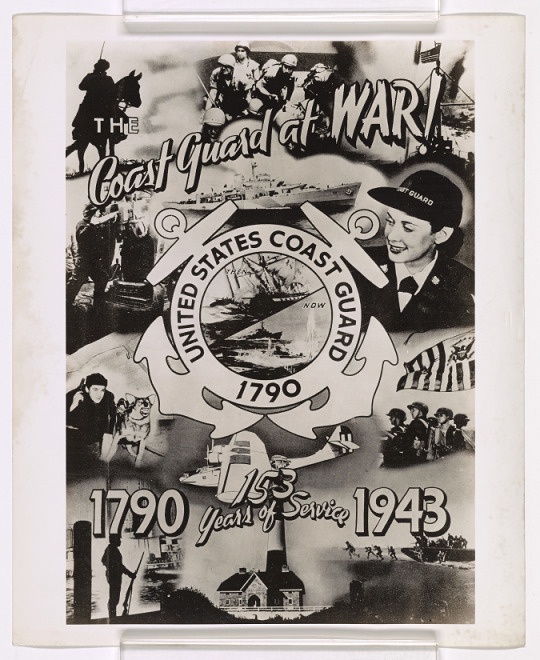
The Coast Guard celebrated its 153rd anniversary during WWII with this poster, August 2, 1943.
Record Group 26: Records of the U.S. Coast Guard
Series: Photographs of Activities, Facilities, and Personalities
File Unit: Port Security; Photographs of Posters
Image description: Poster reading “The Coast Guard at WAR! / United States Coast Guard 1790 / 1790 / 153 Years of Service / 1943” Photos and illustrations show: A man on horseback, holding a sword; a group of men in uniform, wearing helmets; the American flag flying from a ship; a smiling woman in uniform; modern Coast Guardsmen under the flag of the Revenue Cutter Service; men jumping from a landing craft and running up a beach; a lighthouse; a man standing guard, holding a rifle; a Coast Guard aircraft; a man in black cap with a snarling dog; a man loading ammunition into a ship’s gun; a Coast Guard ship; in the center is the Coast Guard logo with illustrations of a 1799 battle against a French privateer, and a Coast Guard cutter sinking a U-boat.
#archivesgov#August 2#1943#1940s#World War II#WWII#military#U.S. Coast Guard#war#poster#graphic design
80 notes
·
View notes
Text
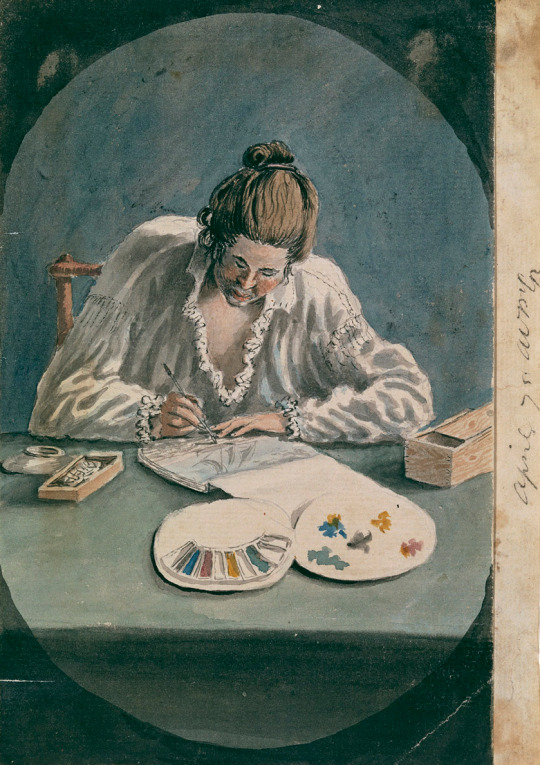
I found some interesting biographical information about our friend Lieutenant Gabriel Bray, shown above painting his self-portrait in April 1775 with his watercolours kit, in what is probably the wardroom of HMS Pallas (NMM).
If you're not familiar with Gabriel Bray's wonderful art depicting the world of the late 18th century Royal Navy, you're in luck! His pictures are priceless primary sources.
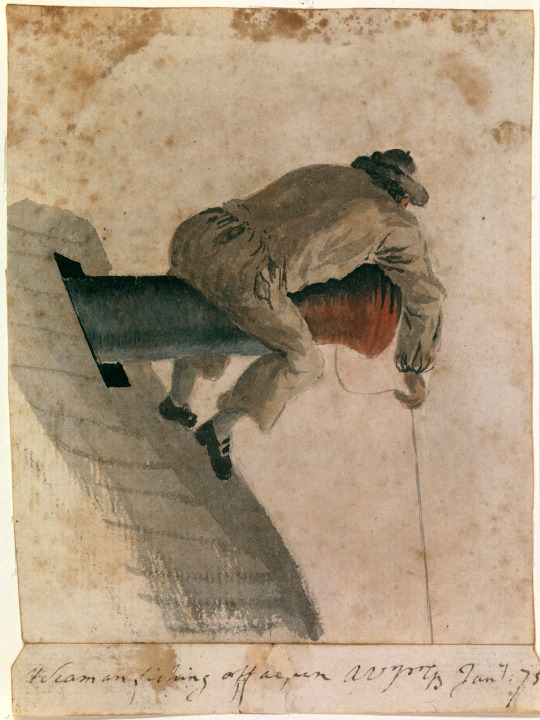
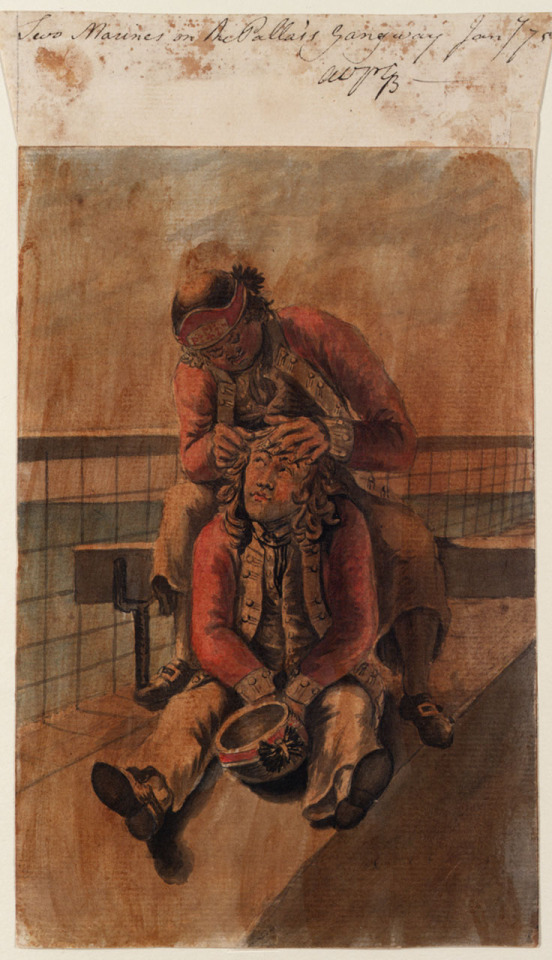
A sailor fishing off of a gun, and two Royal Marines, both from the Pallas album.
Bray is one of the seafarers in Huw Lewis-Jones' book The Sea Journal: Seafarers' Sketchbooks, which provides more information about his life than the National Maritime Museum, Greenwich:
The son of a mariner, Gabriel Bray joined the navy at fifteen as a captain's servant. In the first six years of his sea career he served on six different ships and managed to pass his lieutenant exams in 1770, but no ships were available for a posting. His lucky break came in 1773, when assisting on the royal yacht Augusta at the fleet review in Spithead. He secretly sketched the scene and, having sat up all night to finish the painting, then managed to have it presented to King George III the following day; the king apparently liked it so much he promoted Bray on the spot.
As a keen artist, Bray made numerous watercolours on his voyages to West Africa and Jamaica when lieutenant on the frigate Pallas. His commander was Sir William Cornwallis, later the well-known admiral 'Billy Blue', a friend of Nelson and commander of the Channel Fleet during the war with France. Lacking the right family connections, Bray never advanced beyond the rank of lieutenant, so settled instead for commands of the revenue cutters Sprightly, Enterprise, Nimble, and Scourge, defending the English coast against smugglers. [...] On one notable occassion it is said he even fought off a Frenchman wielding a blunderbuss. After all this drama, he spent his final years in Dorset, a happy churchwarden.
— Huw Lewis-Jones, The Sea Journal: Seafarers' Sketchbooks
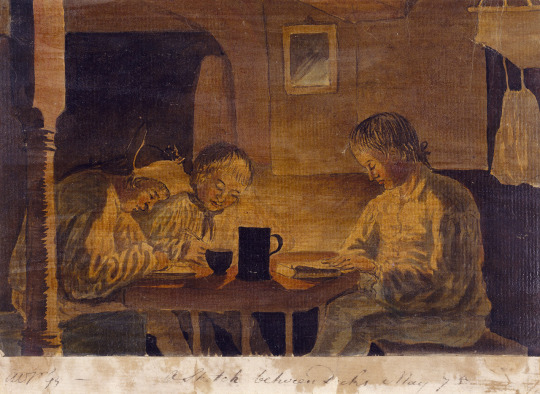
'Sketch between Decks, May 75': midshipmen in the ship's cockpit reading and studying by candlelight, as Bray himself would have lived as a middie.
#age of sail#naval history#gabriel bray#royal navy#18th century#hms pallas#naval art#midshipmen#royal marines#sailors#idea to get yourself noticed: give a sketch to king george iii#stay up all night working on your creative projects! (relatable)#i would have loved to meet mr bray
76 notes
·
View notes
Text

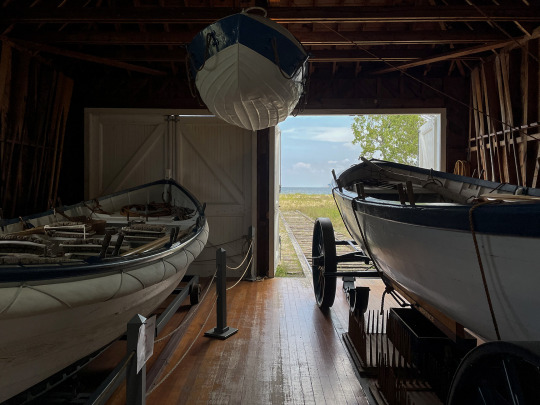

U.S. Life-Saving Service
I took these pictures at the Maritime Museum in Glen Haven, Michigan. The museum is made up of several buildings on the shore of Lake Michigan in Glen Haven, Michigan, and is part of Sleeping Bear Dunes National Lakeshore. In my humble opinion, the displays and interpretive information are first rate.
The U.S. Life-Saving Service dates from 1848; it merged with the Revenue Cutter Service to form the Coast Guard in 1915. For more information, please go here.
Three images by Richard Koenig; taken July 6th 2023.
#glenhavenmichigan#glenhaven#puremichigan#uslifesavingservice#uscoastguard#revenuecutterservice#sleepingbeardunesnationallakeshore#sleepingbeardunes
41 notes
·
View notes
Text

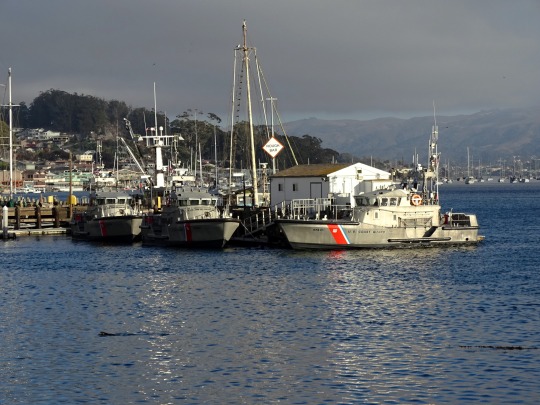



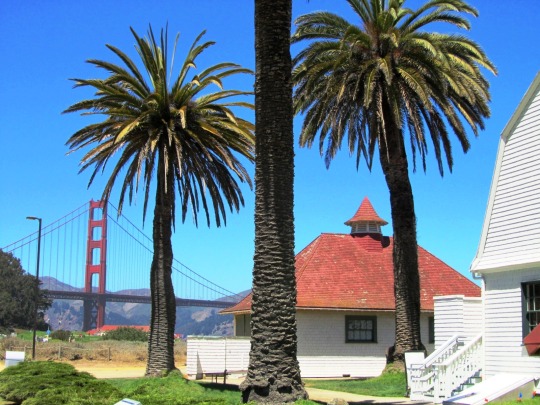



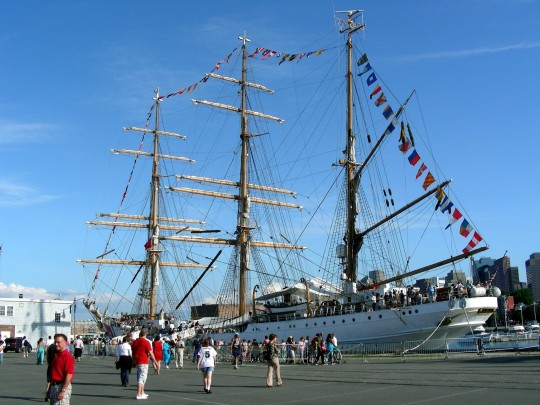

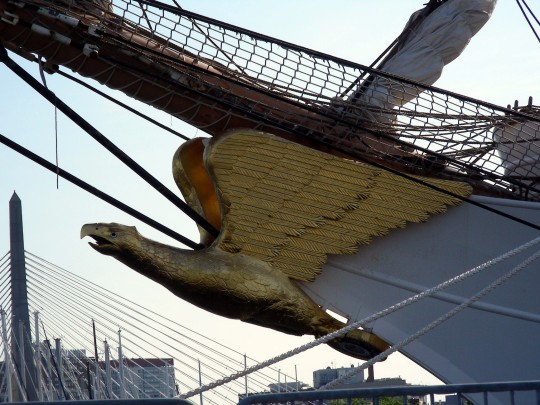

U.S. Coast Guard Day
U.S. Coast Guard Day honors the United States Coast Guard, the military branch that protects the waters and shorelines of the United States. It is celebrated on the anniversary of the founding of the Revenue Marine, the forerunner of the Coast Guard. On August 4, 1790, the United States Congress created the Revenue Marine and authorized the construction of 10 revenue cutters to be used to enforce U.S. tariff laws—to stop illegal smuggling and collect revenue on incoming goods. The Revenue Marine was housed in the Department of Treasury and thus directed by Secretary of Treasury Alexander Hamilton.
The Revenue Marine's name was later changed to the Revenue Cutter Service. Then, in 1915, the Revenue Cutter Service was combined with the United States Life-Saving Service to form the United States Coast Guard. This created a single maritime service, bringing together one devoted to enforcing maritime laws and one dedicated to saving lives. The United States Lighthouse Service became part of the Coast Guard in 1939, and the Bureau of Marine Inspection and Navigation became part of it in 1946. In 1967, the Coast Guard was transferred from the Department of Treasury to the newly-created Department of Transportation. Similarly, it was transferred to the Department of Homeland Security in 2003.
U.S. Coast Guard Day has been marked in some form since at least 1928. Presidents have proclaimed August 4th as "Coast Guard Day." Harry Truman did so in 1948, and Ronald Reagan did so in 1984 after being requested to do so by Congress. In large part, U.S. Coast Guard Day is an internal celebration by Coast Guard personnel and their families, but others join in honoring Coast Guard members as well. Coast Guard units often organize picnics and informal sports competitions, where they celebrate with family and friends. The American flag is typically flown on the day, particularly by those who have family members in the Coast Guard. Grand Haven, Michigan, known as Coast Guard City, USA, holds the annual Coast Guard Festival each year around August 4th.
The Coast Guard defines itself as "the principal Federal agency responsible for maritime safety, security, and environmental stewardship in U.S. ports and inland waterways, along more than 95,000 miles of U.S. coastline, throughout the 4.5 million square miles of U.S. Exclusive Economic Zone (EEZ), and on the high seas." It has active duty, reserve, and civilian employees, and there also is a Coast Guard Auxiliary. It is divided into two area commands, the Pacific Area and the Atlantic Area, and these are divided into nine district commands. Many Coast Guard stations are located in the districts. The Coast Guard fleet consists of cutters, boats, and fixed and rotary-wing aircraft. Today this branch of the military and its members are honored with U.S. Coast Guard Day!
How to Observe U.S. Coast Guard Day
Some ways you could observe the day include:
Make plans to attend New Haven's Coast Guard Festival, Petaluma's Coast Guard Day, or another public event in honor of the Coast Guard's founding. If you are a member of the Coast Guard, or if you have a relative in the Coast Guard, see if there are any private events being held in honor of the day that you can attend.
Stop at a Coast Guard station.
Fly the American flag.
Learn more about the responsibilities and functions of the Coast Guard. You could do so by reading a book such as The Coast Guard or The United States Coast Guard and National Defense: A History from World War I to the Present, or by exploring the official United States Coast Guard website.
Watch a film that features the Coast Guard.
Join the Coast Guard.
Source
#CCGS Laredo Sound#US Coast Guard 87301#U.S. Coast Guard Birthday#U.S. Coast Guard Day#Eureka#USCoastGuardDay#CCGS Sir Wilfrid Grenfell#Canada#Canadian Coast Guard#CCGS Placentia Hope#National Naval Aviation Museum#St. John's#Pensacola#St. Thomas#Charlotte Amalie#architecture#engineering#original photography#travel#vacation#tourist attraction#U.S. Coast Guard Barque Eagle#Boston#San Francisco#Golden Gate Bridge#4 August#4 August 1790#anniversary#USA#cityscape
3 notes
·
View notes
Text
I posted this as a comment on a Reddit thread earlier thread but decided to delete it and make a post bc it's tl;dr for a comment. Then it became tl;dr for a Reddit post, too, so I'm bringing it to my tumblr. Disclaimer that these are just my thoughts as a fan and an observer re: Watcher's shift to streaming.
So I've long thought that YouTube isn't the right platform for Watcher, bc their biggest problem is that they don't function the way that "modern" YouTube requires. Back in the day, it was easier to turn a profit on YouTube but these days, to be successful, you have to utilize the tools YouTube gives you to make money, which are channel memberships, livestreams, and sponsored ads. Watcher doesn't do any of those things which hurts them as those are huge opportunities for revenue that are just being ignored. Their video game series is perfect content to be held via livestream, for example; so are the debriefs. Even if they did a monthly livestream with Superchats and memberships, they'd rake in so much money. I don't know why they don't.
But on top of that, Watcher doesn't work with The Algorithm, which - I don't like The Algorithm, but it's a fact that content creators have to lean into it in order to build their audience. YouTubers who are successful now not only do the memberships et al. but they also upload consistently, usually once or twice a week. Videos come out pretty quickly after they're filmed, and they're usually centered around a specific thing. The variety of Watcher is a big draw bc it pulls in a lot of people who are there for different things, but it works against them too, bc they only post weekly when they're in an active season of a show, and so the audience that only tunes in for 8 weeks of Mystery Files, for example, may not visit the channel again for another year or six months whenever the next season comes out. It's hard to keep a consistent audience to provide the numbers needed when the content appeals to all kinds of people and their model of "seasons" that are shot in advance and go through a long post-production process works against them.
So I can see why they want to move away from YouTube. They don't want to be just another cookie-cutter channel, and I feel like they especially want to distance themselves from the oversaturated (and frankly cringe) YouTube ghost-hunting genre that's exploded recently (Ryan keeps throwing shade at probably Sam and Colby, plus while I enjoyed the last season of GF, I also found it uncomfortable to watch at times bc Shane's disdain for all of it was just hard to sit through, for me; it wasn't fun). But they don't seem to realize that, in creating their niche, they've really painted themselves into a corner where their content doesn't work anywhere but YouTube.
So instead of trying to launch a whole new streaming service, they need to be willing to change up their model to make it more adaptable to YouTube. A more flexible "upload model" - with memberships, livestreams, and ad sponsors - would give them the revenue they're looking for, but that would also require them to dial back the production value and lose some employees, and their unwillingness to do that is what's going to ultimately make them fail. And it's weird bc their audience doesn't even care about production value! GF would be a lot better if they changed up the format and didn't bring 10 people on location, so it's like - clearly they're the ones who want the better production value, not us. It's not for us but they want us to pay for it? Bruh???
I feel like it's really such a shame, and as much as I love Watcher, I don't want to pay for another streaming service and I'm so goddamn sick of paywalls on literally the entire internet that I just cannot. I'm tired of not being able to use a website or even browse without having to make an account, I'm tired of having to make an account and then only being able to use one or two features if I don't also pay, or getting slammed by ads that essentially make the website unusable bc there's ads all over it, I'm tired of websites that pop up with that godawful "you're using an adblocker, please disable to proceed to our website!" message. I'm tired of things being locked up and inaccessible and while I understand that people should be paid for their work, there are ways Watcher can make money and get paid that don't involve trying to hustle their audience to pay for a streaming service to access like 12 episodes of content a year. Just ugh.
#wearewatcher#yeah this sucks#also sorry to my followers who have no idea what i'm talking about#this is drama from my other fandom lol
2 notes
·
View notes
Text

Stop and search, 1770 - The Bristol revenue cutter Dancer in the act of intercepting a smuggler brigantine, by Bob Grimson (1945-)
73 notes
·
View notes
Text
. . . Sizzematic Corp. will first release scissors at a K-Mart near the company's home base in Pittsburgh, PA in January of 1991. The price will be $5 with a life-time warranty as the scissors will last indefinitely says company President Hobart Sizzelman.
PITTSBURGH, Aug 28 — The Sizzematic Corporation is planning to introduce their newest advancement produced in Pittsburgh, the Sizzematic.
The Sizzematic is to be brought into the public's eye within a week's time. It is a universal instrument (not discriminating between right or left handed consumers) . . .
The Sizzematic can cut through virtually any type of material. This making it an innovative leader in cutting devices.
. . . Four, six, ten and twelve inch versions will be ready for release in January 1991 . . .
Sizzemtaic employees have kept development under lock and key due to the products significance to the eventual consumer who will benefit in speed and accuracy when cutting . . .
. . . The product will be found at any retail outlets.
"Sizzematic Corporation Introduces a new Revolutionized Cutting Tool"
. . . "The cutter" will be ready for release in January. So pick up "the cutter" in January and make material cutting safer and simplier.
. . . This new cuting tool will cost approximately $5 and can be purchased in any major retail outlet around the world . . .
This safe, convenient, dependable cutting tool is expected to survive indefinitely but only comes with a one year warranty.
"The Scissor"
PITTSBURGH, AUGUST 28 — The Sizzematic Corp. has supposedly developed a new product that will revolutionize cutting that is done in the home, office and industry.
Under extreme secrecy, Sizzemore engineers have constructed a product that will be able to cut paper, cloth, cardboar, string and plastic . . .
The Sizzematic Corp., founded in 1912 and also makers of vaccuums, predicts sales of $500 million, which will increase company revenues by 50 percent.
It's easy to use and very inexpensive ranging from four to six dollars . . .
The Sizzematic #1 can be uised at home to clip coupons, cut string or tape, snip those itchy labels out of clothes and cut fabric . . .
. . . They will be easily accessible to the public by being sold in such stores as K-Mart, Phar-Mor, Sears and . . .
Co. president Hobart Sizzelman, who took over the company his father founded 79 years ago in 1912, predicts 1st-year sales of $500 million . . .
Developed by Sizzemore engineers, this universal cutting tool can be used to trap and cut a variety of things such as paper and cloth to string and plastic up to 1/8 inch thick . . .
. . . The product is said to last indefinitely.
Sizzemtaic Corp., founded in 1912, is a leading manufacturer in the drafting table and vacuum cleaner industries, having developed the Sizzematic 4000 vacuum cleaner amongst several other products.
Although plans are in the works for a children's version with rounded blades, no definite plans have been announced yet.
PITTSBURGH AUGUST 28, Hobart Sizzelman president of Sizzematic Corp., founded 1912, released a new product today that is predicted to "revolutionize the cuttery world".
Sizzematic Corp who long standing reputation in the vaccume business has invested approximately three hundred million dollars into the development of a new product line.
Amazingly, the tool will be priced at a mere $5 and will be available at all major retail outlets in the hardware section.
The Sizzematic Co. that brings you this amazing tool has had tremendous success in the past with their very popular vacuum cleaners. President Hobart Sizzeman released that this is a $500 million investment which should increase sales by 50%. in the first year.
This tool will be useful for all members of society: from the house wife to the architect. It's small size and easy use are very convenient.
The product comes with a 1 yr guarantee. However, we feel the guarantee will not be needed due to the unique durability of this cutting tool.
Blades lengths run at 4, 6, 10, 12 and accomidate cutting missions from the sewing basket to the hedges.
A nationwide publicity tour is being planned. This product will be in every national ahdrware store in the country. It will also be available in most convenience and beauty supply shops. Possible promotions in the works are a "Name the Product" campaign. The winner of the contest will receive a 2-week vacation. Another promotion is a competition in local malls between the product asnd the less useful and often inefficient razor. This demonstration will prove the usefullness of this product to the country.
PITTSBURGH AUG. 28 — Have you ever wanted one big piece of paper cut in two smaller pieces? Are you sick of using dangerous razor blades to remove tags from clothes?
With the changing times around us, it is necessary for the advancement of technology, whether it be in the workplace, on the job or at home. For this reason, the Sizzematic Corporation, founded in 1912, has developed a Revolutionary cutting device . . .
The Corporation itself is based in Pittsburgh, Pa., the so-called "steel city." This will enable the product to be marketed Readily and more economically.
Sizzematic has predicted their 1st year sales to peak $500 million . . .
Attention housewives, office workers, laborers, managers, etc . . .
Found in most major retail outlet stores such as K-Mart, Phar-Mor, and Thrift Drug.
Pick yours up today, and cut yourself a break.
The principle at work here is two opposing knives, held together by a joint and manipulated by the the thumb and middle finger which are inserted into two handles. The friction that results enables the user to cut through a variety of materials. The engineers of the corporation, headed by company President Hobart Sizzelman, designed the model one to be the universal cutting tool over other conventional methods, and
3 notes
·
View notes
Text

𝗟𝗶𝘃𝗲𝘀𝘁𝗿𝗲𝗮𝗺𝗶𝗻𝗴 𝗜𝘀 𝗞𝗶𝗹𝗹𝗶𝗻𝗴 𝗛𝗶𝗽-𝗵𝗼𝗽
Well not really, but the music industry is in trouble & it seems to be a dying form of entertainment. Once a dominant & profitable force in the entertainment world, it has seen a sharp decline in revenue, popularity, & innovation in recent years. One of the genres that has been hit the hardest is hip-hop, which is celebrating its 50th anniversary this year, but seems to have lost its edge & relevance in the current cultural landscape. Meanwhile, live streaming platforms such as Twitch, Rumble, Kick, & others have taken the world by storm, attracting millions of viewers & fans who crave more interactive & immersive forms of entertainment. What are the reasons behind this dramatic shift in consumer preferences & behavior? How can hip-hop bounce back & regain its numbers?
One reason why music, especially hip-hop, seems to be losing its appeal is oversaturation. With the advent of digital tech & streaming services, anyone can produce & distribute music, but few can stand out to create original, authentic content. As a result, many hip-hop artists tend to sound the same, relying on catchy hooks, trap beats, auto-tuned vocals, & superficial lyrics. This leads to boredom & dissatisfaction among listeners who want more diversity & creativity. According to a survey by Deezer, 60% of music fans said they were stuck in a musical rut & listened to the same songs over and over again. Some critics argue that hip-hop has lost its social & political relevance, as it has become more commercialized & mainstream. Hip-hop was born as a way for the disenfranchised youth to voice their frustrations & call for change, but nowadays it seems to focus more on materialism, violence, & misogyny. As Chuck “Jigsaw” Creekmur, CEO of AllHipHop, said: “Hip-hop is giving a voice to the voiceless”, but is it still doing that?
Another reason why live streaming platforms are booming is the demand for more interactive & immersive forms of entertainment. Live streaming offers a unique experience that combines video, audio, chat, & social media features, allowing viewers to connect with their favorite streamers & communities in real-time. Streaming also provides a variety of content that caters to different tastes & interests, from gaming & sports to music & education. Some live streamers even pioneer new forms of entertainment, such as Kai Cenat, who hosts virtual parties on Twitch that attract thousands of viewers. Live streaming also offers more opportunities for monetization & entrepreneurship, as streamers can earn money from subscriptions, donations, sponsorships, & merchandise sales. According to Streamlabs, live streamers earned over $100 million in tips in Q1 2021, a 23% increase from Q4 2020.
In conclusion, the music industry is facing a crisis due to the lack of innovation & diversity in its content. It has been struggling to regain its numbers since the downfall of the pandemic. Going to live concerts with high-priced tickets is not an easy decision in this economy. On the other hand, live-streaming platforms are thriving due to the high level of interactivity & variety they offer. This doesn't mean that music or hip-hop is doomed or irrelevant. It is still a powerful & universal form of expression that can touch people’s emotions & inspire social change. Hip-hop can bounce back by embracing new technologies & platforms that can help to reach new audiences & create new experiences. Some artists have experimented with live-streaming concerts, virtual reality shows, or interactive albums that allow fans to participate in the creative process. By doing so, they can revitalize their art form & regain the numbers. But the record labels are going to have to step out of the way and let true artistry take precedence over their cookie-cutter formula. We're tired of that & want more substance and truth.
3 notes
·
View notes
Text
Minette(as a loco)
The game may not add her as a playable character, but she will be added to my strange au!

Yep, this is what she looks like. She is older than Umbrella, and even worked on her own little narrow gauge line. Before the mainline loop that connects Innsmouth to the railway their services were served by a narrow gauge line. Minette was its only locomotive. She is friendly, kind, and is always a welcomed sight. When that standard gauge connected with complete, the need for her line was non existent. However the owner managed to keep the line in the harbor, so for a few years she would run tourists around the harbor as a tour engine. She was happy not to be subjected to the cutter’s torch, but grew bored of her job. Unfortunately the revenue from the tours could only sustain her for so long. Soon they had to stop the tours, or go bankrupt.
Thankfully their luck hadn’t ran out yet. Around the time the tours stopped, it had been around three years since the Maplecrest narrow gauge line had opened, and services only increased. It was feared that Umbrella would be over worked, and potentially break down. Minette’s owner was able to sell her to that railway for a good price. She soon joined Umbrella and became the railway’s second engine. She and Umbrella didn’t always see eye to eye as she found Umbrella’s whiny, and big headed attitude unbecoming of a useful engine. The two manage to get along, and worked together for many years.
#skullgirls#skullgirls minette#ttte#no clue how she would fit into the game as a fighter but shes adorable so thats all that matters
5 notes
·
View notes
Text
Anything to secure a Grant, eh? But for me, it has been a wonderful challenge that I have learned since being a child, to divert it into my artwork. What's the problem? Unless you are Autistic on a level that is so disabling that you can't even find a way to divert it into Social "Norms". i think there has been too much torment and indeed torture (Electro Shock, before it was outlawed.), in the way "Normal" people approach Autism. The first thing they need to do is..., Stop Fucking with our heads! And stop looking for a cookie cutter bucket to throw everyone into. Just to make it easier for them. This isn't one of those things they can "Fix'/ "Cure". The "Affliction" is just too diverse, in and of itself. It just isn't that easy.. They know this already, but it is a Revenue Source and they just keep looking for more creative ways to play this source. Perhaps they should cure their own Sociopathic behavior first.

45K notes
·
View notes
Photo
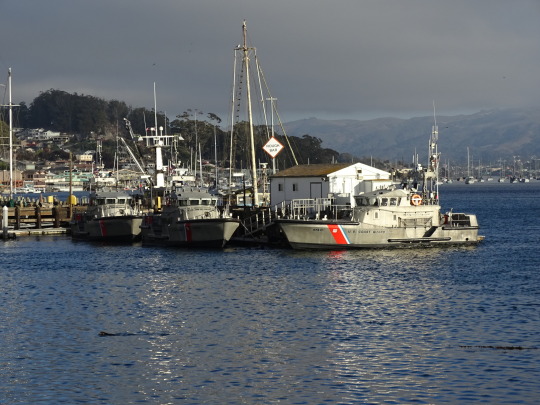





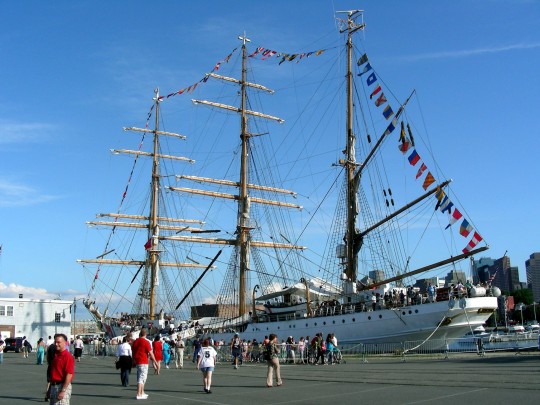



U.S. Coast Guard Birthday
Show your support for the brave men and women of the US Coast Guard who put their lives on the line to save ours, from fishing boats accidents to hurricanes.
US Coast Guard Birthday honors the courageous work of coast guards. When Hurricane Katrina struck the Atlantic coast of the United States in 2005, the US Coast Guards saved over 33,500 lives, an estimated 24,000 of these were rescued from peril in severely dangerous conditions. And that just scratches the surface of the important work that these brave men and women do. So get excited, because it is time to celebrate the US Coast Guard Birthday!
History of US Coast Guard Birthday
The history of the coast guard in the United States can be traced back to the year 1790 when it was established by the first Congress who allowed Secretary of the Treasury, Alexander Hamilton to combat smuggling and tariff evaders with his fleet of ten ships. Originally called the Revenue Marine Service, or Revenue Cutter Service, the service was combined in 1915 with the US Lifesaving Service to become the Coast Guard.
During times of peace, the US Coast Guard acts as part of the Department of Homeland Security and then becomes part of the Department of Defense in times of war. Now, with more than 230 years of history, this important entity offers a great deal of support through navigation, port security, environmental protection and wartime readiness.
In the United States, there are thousands of events nation-wide for people to get involved in and show their support. In the UK, although not directly associated with HM Coast Guard, the RNLI (Royal National Lifeboat Institution) is a charity organization with the sole aim of rescuing those in distress at sea. They launch over 6500 times a year, and have saved over 134,000 lives since their founding. Pakistan Coast Guard Day is celebrated on September 8.
So bake a cake, throw a party and get appropriately excited about celebrating and enjoying the US Coast Guard Birthday this summer!
How to Celebrate US Coast Guard Birthday
Have a blast with the observance of celebration of this important day. Join in on a wide variety of activities for the US Coast Guard Birthday, including some of these:
Throw a US Coast Guard Birthday Party
Those who have been members of the coast guard, who have benefited from the work of the coast guard, or even those who just appreciate it can celebrate by doing what people often do for birthdays – throw a party! Just like any party, the US Coast Guard Birthday deserves festive decorations such as balloons and streamers, some good music, a gathering of friends and, of course, a big cake!
Make it a coast guard themed party by decorating with boats, anchors and all sorts of sea-themed ideas, as well as employing the American flag and the US Coast Guard flag. The snacks can also be of a maritime theme, with a cake made in the shape of a ship, cookies decorated like life preservers, and even a bowl full of individually wrapped Life Savers candies! Don’t forget to play the US Coast Guard Theme Song in the background, “Semper Paratus”.
Learn More About the US Coast Guard
The US Coast Guard Birthday celebration is a great motivation to learn a bit more about this important service. Do a bit of online research, check out some books from the local library, or head on over to the National Coast Guard Museum in New London, Connecticut.
Make a US Coast Guard Birthday Playlist
Have loads of fun celebrating the US Coast Guard Birthday with music! Create a playlist that includes maritime and coastal themed songs, getting started with some of these tunes:
Beyond the Sea by Bobby Darin (1959)
(Sittin’ on the) Dock of the Bay by Otis Redding (1967)
If I Had a Boat by Lyle Lovett (1987)
Banana Boat (Day-O) by Harry Belafonte (1956)
Source
#Morro Bay#Eureka#Pacific Ocean#California#Newfoundland#Canada#CCGS Sir Wilfrid Grenfell#Canadian Coast Guard#CCGS Placentia Hope#St. John's#Atlantic Ocean#National Naval Aviation Museum#Pensacola#Florida#original photography#ship#helicopter#Boston#Massachusetts#U.S. Coast Guard Barque Eagle#Charlotte Amalie#St. Thomas#USVI#San Francisco#US Coast Guard Birthday#NationalCoastGuardDay#4 August
5 notes
·
View notes